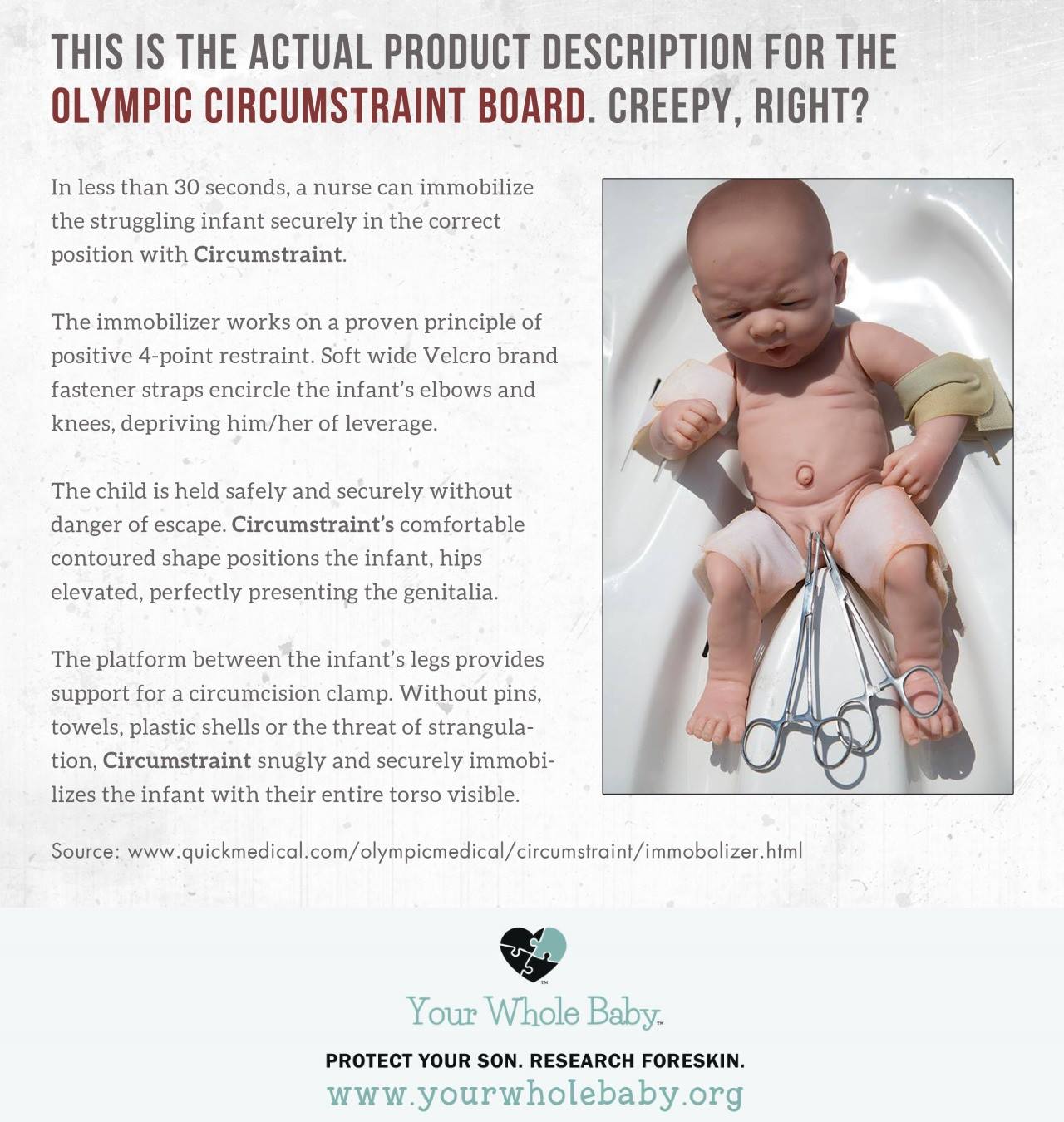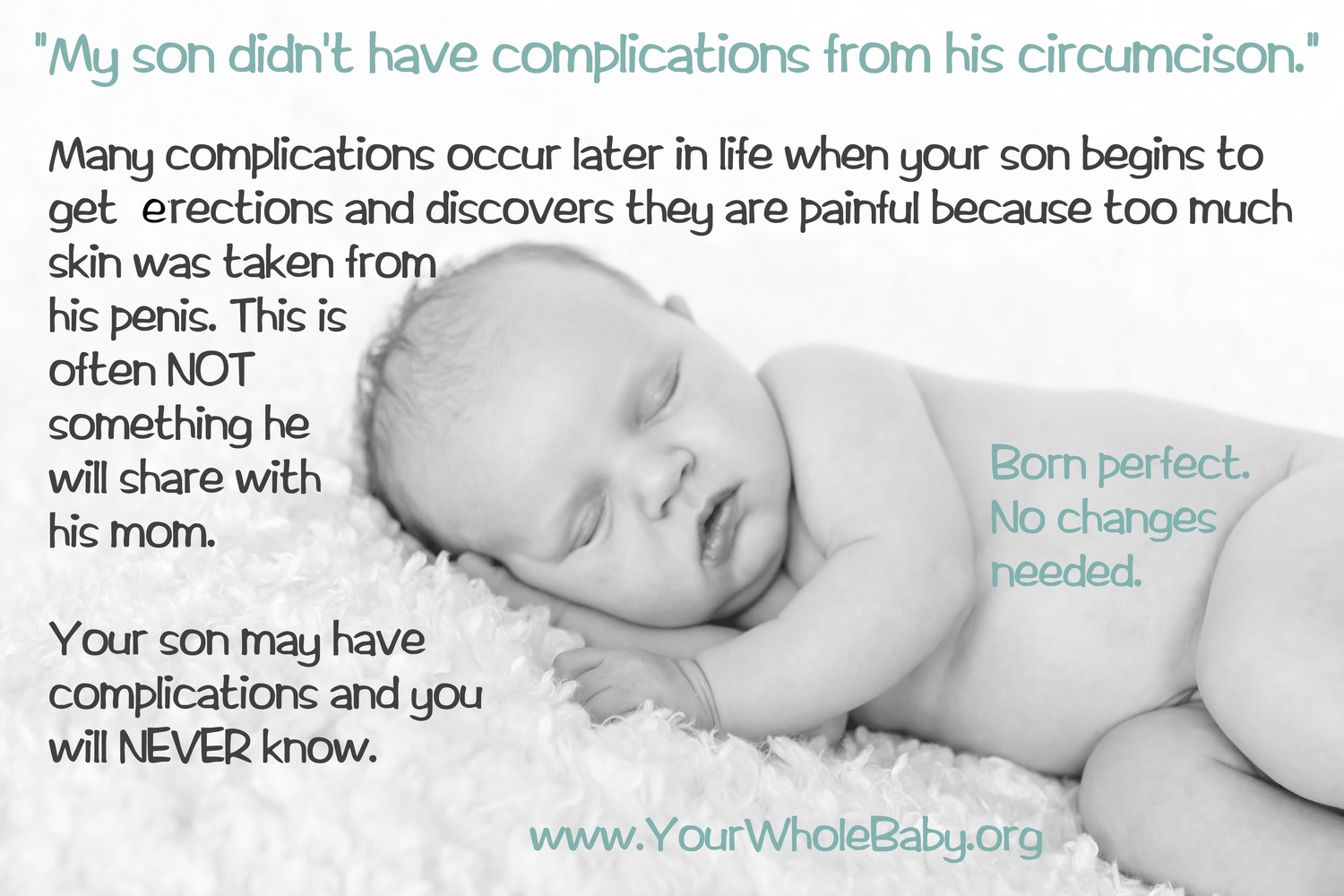"...In less than 30 seconds, professionals can immobilize the infant securely . . . on the principle of positive 4-point restraint. . . . [The Circumstraint] positions the infant with the hips elevated, presenting the genitalia. The platform between the infant's legs provides support for a circumcision clamp..."
From the Circumstraint's actual product description.
Tied Down, Naked
Parents are often not fully informed by their doctors and medical practitioners when they are approached for the circumcision decision. One of many facts withheld from them is that the child is usually tightly restrained during the procedure. Legs - and arms too if necessary - are tightly strapped to a specially-designed board called a Circumstraint.
Ironically, this is done for the "safety" of the child, to prevent accidental injury from unexpected movements. Wouldn't an even safer solution be not having a knife near his penis at all?
Extremely Painful
Often, parents are not fully informed of the brutality of the procedure. The foreskin develops initially fused to the glans, similar to how a fingernail is fused to the underling nail bed, and naturally remains this way until the child is several years old, sometimes even until puberty. Thus, the first step in an infant/childhood circumcision is to forcefully separate the foreskin from the glans by inserting a probe and ripping that adhesive membrane -- think of jabbing something under your fingernail until it pops off. Obviously this is very painful, and it is just the beginning. Then comes the crushing, clamping, and slicing.
Usually there is not full disclosure of the inadequacy of pain relief before, during, and after the procedure. Anesthetics which would be the most effective are generally not safe for infants. Those that are used give only partial relief, and only when they are even given enough time to take their full effect (which rarely happens). Some doctors perform the operation with only a sugar water pacifier, in an attempt to increase endorphins and distract from the pain. This pain can be so intense that many babies go into a state of shock; naive parents can be convinced that "he slept right through it," when in reality his body may have started shutting itself down because of the massive trauma just inflicted upon him. Although not yet fully studied, there are indications that this flood of stress hormones through the body could have an impact on brain development during this very crucial period, just hours to days after birth.
Complications are NOT Rare
And then there are the complications -- many of which do not manifest until puberty, when a child is unlikely to report the problems to his parents. Having lived with them his whole childhood, he may not even realize something is wrong and assume that is the way it is supposed to be. This leads to under-reporting and inaccurate statistics about the actual rate of complications.


